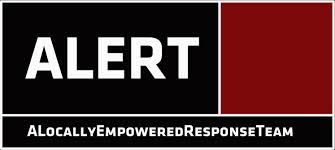Government Grants
Business Grants
Home Owner Programs
Federal Programs
About Us
Desalination and Water Purification Research Program Pitch to Pilot
Reclamation is interested in research where the benefits are widespread but where private-sector entities are not able to make the full investment and assume all the risks.
Reclamation is also interested in research that has a national significance—where the issues are of large-scale concern and the benefits accrue to a large sector of the public.
The goal of the DWPR program is to address the need to reduce the costs, energy requirements, and environmental impacts of treating impaired and unusable water.
DWPR program activities further support multiple related initiatives related to the Water Subcabinet such as the Water Reuse Action Plan and Water Security Grand Challenge.
The program also aligns with Executive Order 14008, “Tackling the Climate Crisis at Home and Abroad,” by investing in development and application of advanced water treatment technologies that expand access to otherwise unusable water resources, thereby increasing water supply flexibility under the risks of long-term climate change and shorter-term drought.The objectives of this Notice of Funding Opportunity (NOFO) are to develop innovative and disruptive new technologies or process to:Reduce the costs, energy requirements, and/or environmental impacts of treating impaired and unusable water to standards necessary for an identified beneficial uses.Improve efficiency of water treatment processes - either by improvements to pre-treatment, post-treatment, monitoring sensors, or other innovative process/technology.Increase effectiveness of reverse osmosis/nanofiltration concentrate management by reducing cost, energy, and/or environmental impacts.Treat brackish groundwater in a less energy-intensive way than current processes and technologies.Address costs, energy usage, and/or environmental impacts of seawater desalination, including intakes and/or outfalls.Eligible projects are pilot-scale technologies or processes that incorporate or are innovative and disruptive technologies involving flow rates above one gallon per minute and that need to be tested using natural water sources rather than synthetic or laboratory-made feed water.
These projects are typically used to determine the technical, practical, and/or economic feasibility of a process.
Preliminary costs can be developed for capital and operation and maintenance costs.
The description of the technology or process should identify the uniqueness and the disruptive nature of the technology or process itself and/or the testing of it.Questions regarding applicant and project eligibility and application review may be submitted to dwpr@usbr.gov
Reclamation is also interested in research that has a national significance—where the issues are of large-scale concern and the benefits accrue to a large sector of the public.
The goal of the DWPR program is to address the need to reduce the costs, energy requirements, and environmental impacts of treating impaired and unusable water.
DWPR program activities further support multiple related initiatives related to the Water Subcabinet such as the Water Reuse Action Plan and Water Security Grand Challenge.
The program also aligns with Executive Order 14008, “Tackling the Climate Crisis at Home and Abroad,” by investing in development and application of advanced water treatment technologies that expand access to otherwise unusable water resources, thereby increasing water supply flexibility under the risks of long-term climate change and shorter-term drought.The objectives of this Notice of Funding Opportunity (NOFO) are to develop innovative and disruptive new technologies or process to:Reduce the costs, energy requirements, and/or environmental impacts of treating impaired and unusable water to standards necessary for an identified beneficial uses.Improve efficiency of water treatment processes - either by improvements to pre-treatment, post-treatment, monitoring sensors, or other innovative process/technology.Increase effectiveness of reverse osmosis/nanofiltration concentrate management by reducing cost, energy, and/or environmental impacts.Treat brackish groundwater in a less energy-intensive way than current processes and technologies.Address costs, energy usage, and/or environmental impacts of seawater desalination, including intakes and/or outfalls.Eligible projects are pilot-scale technologies or processes that incorporate or are innovative and disruptive technologies involving flow rates above one gallon per minute and that need to be tested using natural water sources rather than synthetic or laboratory-made feed water.
These projects are typically used to determine the technical, practical, and/or economic feasibility of a process.
Preliminary costs can be developed for capital and operation and maintenance costs.
The description of the technology or process should identify the uniqueness and the disruptive nature of the technology or process itself and/or the testing of it.Questions regarding applicant and project eligibility and application review may be submitted to dwpr@usbr.gov
Who's Eligible
Obtain Full Opportunity Text:
www.usbr.gov/research/dwpr
Additional Information of Eligibility:
Applicants eligible to receive an award to fund activities include: • Individuals/entrepreneurs • Institutions of higher education • Commercial or industrial organizations • Private entities • State and local governmental entities • Federally-funded research and development centers • Tribal governments and organizations • Non-profit organizations Those not eligible include, but are not limited to: • Federal Governmental entities • Foreign entities
Full Opportunity Web Address:
www.usbr.gov/research/dwpr
Contact:
Agency Email Description:
sha-dro-fafoa@usbr.gov
Agency Email:
Date Posted:
2021-04-15
Application Due Date:
Archive Date:
2021-08-27
Social Entrepreneurship
Spotlight
When it Comes to Social Enterprises, Failure is the Best Platform for Innovation

In the world of social enterprises, failure is a cringe-worthy moment nobody wants to talk about. But, social entrepreneurs can benefit from their failures.

